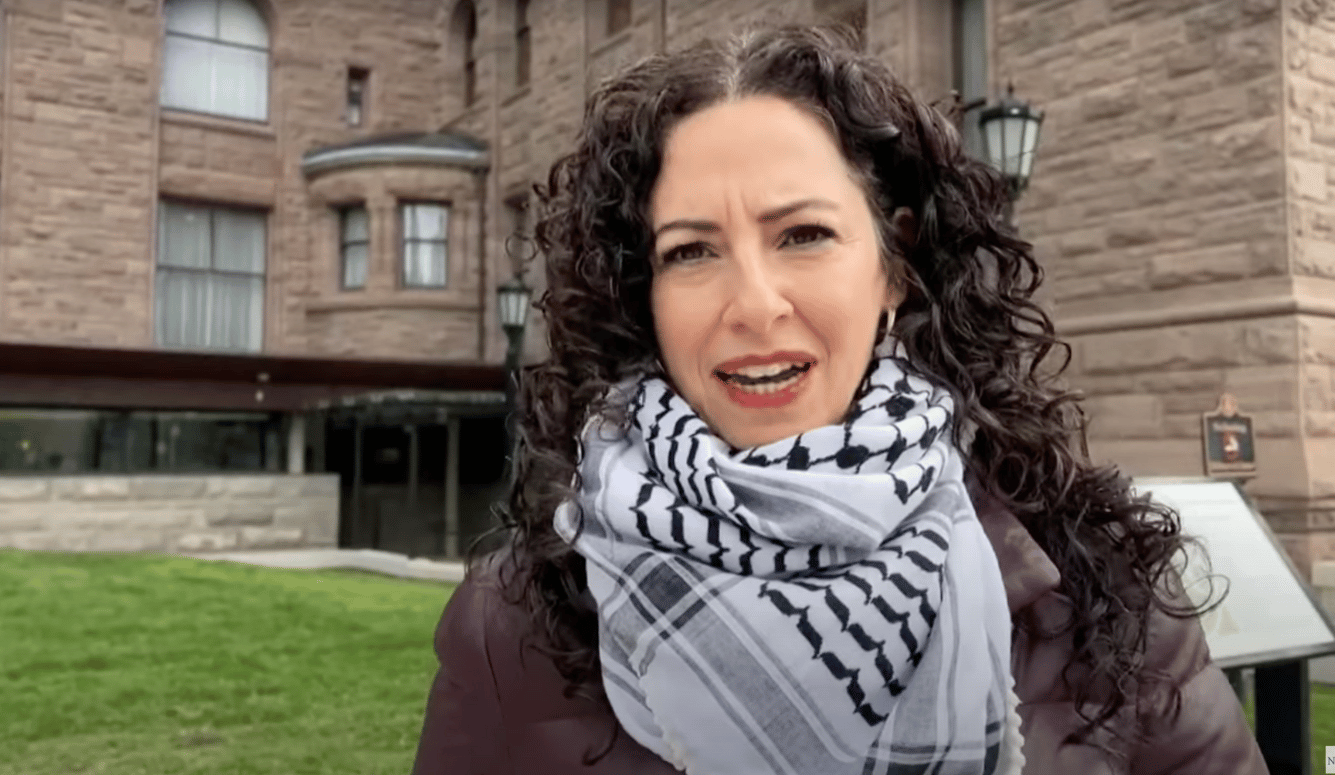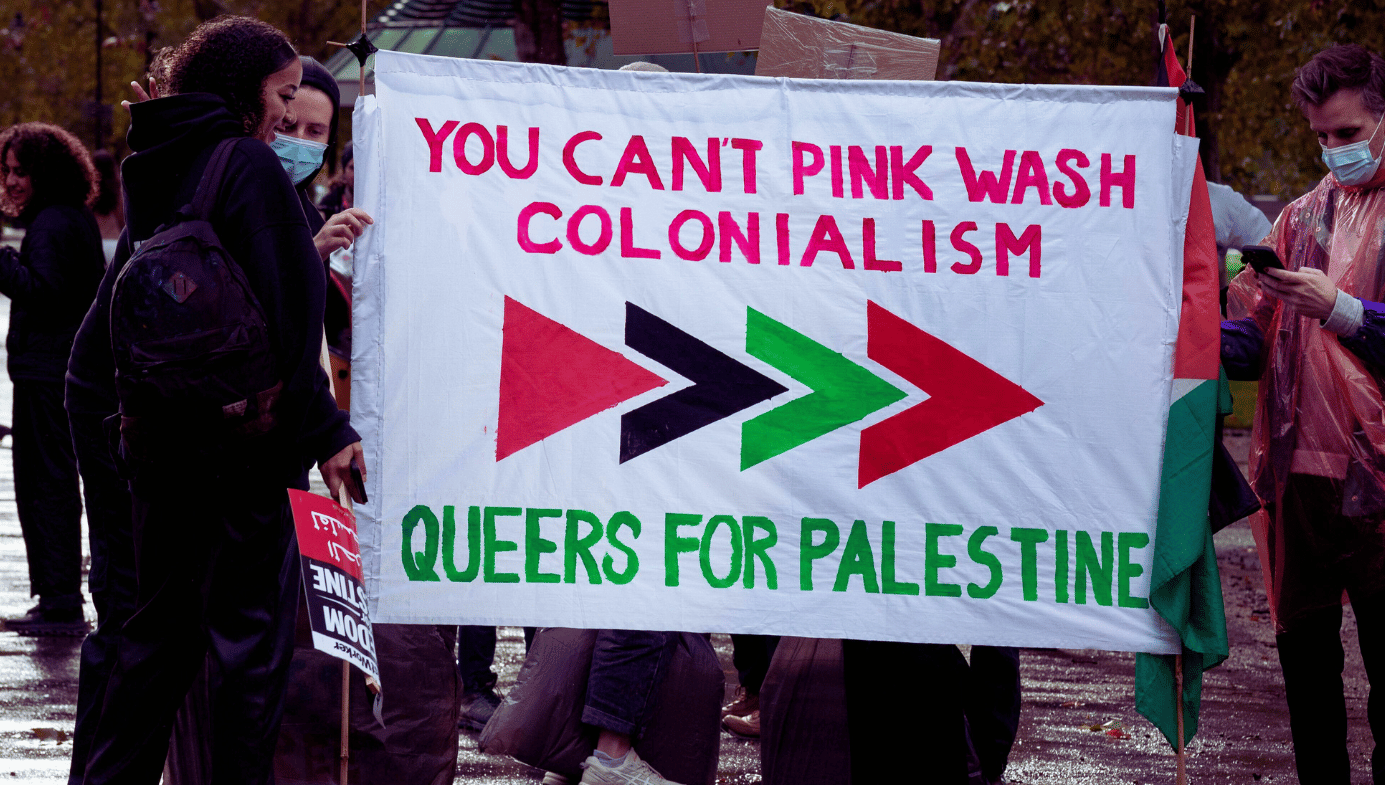Palestine
A New Kind of Racism
An expansive new definition of anti-Palestinian racism could stymie free and open discussion of the Israel–Palestine conflict.

“Anti-Palestinian Racism” (APR) is a term that does not seem to have been widely in use before 2022. It began to be popularised when Dania Majid, co-founder and president of the Arab Canadian Lawyers Association (ACLA), issued a report on the existence of this new form of bigotry. Of course, everyone should oppose racism against Palestinians—as they should stand against all forms of race-based hate. The definition of APR, however, is far broader than the term implies. It can include everything from denying that Palestinians have a “right of return” to Israel to condemning acts of Palestinian violence or terrorism. In fact, the term has been carefully crafted to fit into the social justice lexicon, which goes some way to explaining its ready adoption by various individuals, activist groups, and institutions, including the Toronto District School Board, the Council on American-Islamic Relations, sundry American teachers’ unions, colleges, universities, and even Queen Rania of Jordan.
According to the influential ACLA report, the definition of this new category of racism dates back to 2020 and a case involving the University of Toronto Faculty of Law, which Majid argues was a clear example of anti-Palestinian racism. To back up their claims at the time of the court case, Majid argues, the lawyers “were forced to provide or create a … definition of APR.” This definition became the springboard for a broader report on APR that relied on a skewed survey administered by the ACLA. According to the ACLA, they asked “[a]pproximately 60 individuals and organizations … including activists, youth groups, scholars on Palestinian issues, legal academics and legal professionals … both Palestinians and non-Palestinians,” whether they agreed with or found the ACLA’s definition of APR helpful. Out of the 60 individuals they surveyed, only 19 responded to the first question. Out of those 19 respondents, 82.4 percent said they did; out of 17 respondents to the second question, 52.9 percent (9 people) thought it “a good start but needs improvement”; 35.3 percent (6 people) thought it was “good”; 11.8 percent (two people) thought it unnecessary.
In an August 2022 webinar, Majid explains that her organisation “decided to use the term anti-Palestinian racism” for a number of reasons, including the following:
[T]he oppression of Palestinians is one of settler colonialism and manifests itself in the crimes of apartheid which are both racist systems that privileges one group over another. The attacks on Palestinians and our allies is used to uphold these racist systems. It isn’t necessarily or exclusively about the hatred of the individual but more about targeting those who dare to speak up for Palestinians and against these systems. And importantly there is also much work, learning and solidarity happening with our allies resisting anti-black racism and anti-Indigenous racism as well as other forms of discrimination and we need to be working together. … The expression of anti-Palestinian racism may be intersectional … anti-Palestinian racism may be amplified for those who are members of historically marginalised groups.
Participants at the webinar spoke openly of hitching APR to the anti-racism “bandwagon.” Majid argues, for example, that there has been “so much mobilisation around settler colonialism for indigenous communities in Canada… with Black Lives Matter and anti-black racism in Canada and also around homophobia.” Working with these movements, she asserts, can help further the Palestinian cause since, “people may not understand the history or politics of Palestine, but they understood racism and were able to call it out and identify it without being versed in all things Palestine.” In another webinar, held on 27 October 2023, hosted by the Centre for Comparative Muslim Studies at Simon Fraser University, Yasmeen Abu-Laban of the University of Alberta argued that the increased attention to antiracism that followed the murder of George Floyd and the COVID-19 pandemic made a focus on anti-Palestinian racism especially timely. Such activists are using the antiracist political zeitgeist to recruit people to their cause.
This framework exploits the well-known binary of oppressor and oppressed: inevitably depicting Jews as the powerful oppressors and Palestinians as the powerless oppressed. Combined with the familiar social justice-inflected conviction that in racism impact is more important than intent (a shibboleth that Majid invokes in the 2022 webinar), this means that any criticism of the Palestinian cause or championing of Israel could be seen as racist. As Majid points out, this also allows activists to influence policy at universities and other institutions. She tells the webinar participants:
[W]e decided to use “anti-Palestinian racism” as a term because we knew, because of the path that’s already been created… that people would understand what racism meant … and when you put a charge of racism to an institution in many instances those institutions already have policies in place or have some sort of mechanism where they have to respond and engage with an affected party who is claiming to have experienced racism in their institutions.
Not only should APR be included within the panoply of “anti-racisms,” she instructs her listeners: it should be seen as chief among them.
A further example of the attempt to normalise this expansive idea of anti-Palestinian racism is the newly formed Institute for the Understanding of Anti-Palestinian Racism (IUAPR), a research, advocacy and training institute.
On 24 August 2023, they held a webinar on “Countering Anti-Palestinian Racism,” in collaboration with Jewish Voice for Peace Health Advisory Council and the USA Palestine Mental Health Network. The speakers at the webinar were their president and co-founder Lama Rimawi; Chair of their Education Committee, Merrie Najimy, former president of the Massachusetts Teachers Association (MTA); and co-founder Jess Ghannam, Clinical Professor of Psychiatry and Global Health Sciences at University of California San Francisco. The webinar, which had around 100 attendees, relied on the Arab Canadian Lawyers Association’s extremely broad definition of APR.

The bulk of the webinar was dedicated to a 2024 survey of 1,200 respondents drawn from “social media lists, physician groups, and other online lists,” the majority of whom were not Palestinian. Their key findings:
Anti-Palestinian Racism affects both Palestinians and non-Palestinians
Affects many more people than previously expected
Anti-Palestinian Racism is highly prevalent in some of the most significant sectors of society—including at work from supervisors and colleagues, and at school from faculty, staff and students
Resulting in isolation, fear and mental and physical health effects in the majority of respondents
As Ghannam said during the webinar, “you don’t have to be Palestinian to be impacted or targeted by the APR that exists… it’s an expansive definition of who can be impacted by APR.” This is troubling. As I’ve previously argued, it suggests that an accusation of anti-Palestinian racism can be used as a tool to silence debate and to limit what one can and cannot say about Israel and the Israeli–Palestinian conflict. Najimy sees this as a way to counter what she considers to be “a coordinated project across the country … to try at a systematic and systemic level … to institutionalise a definition of antisemitism which conflates antisemitism with criticism of Zionism and Israel,” arguing that “The attempt to say advocating for the human rights of Palestinians is antisemitic is a political tactic.”
Webinars like these, then, are filled with social justice lingo, complete with land acknowledgements and the warm, fuzzy rhetoric of allyship—but the agenda here seems to be to delegitimise Israel by making only one narrative about the Israeli–Palestinian conflict acceptable in antiracism-obsessed, social justice-influenced circles.
Erratum
An earlier version of the article contained the following incorrect information. This has been updated.
According to the ACLA, they asked “[a]pproximately 60 individuals and organizations … including activists, youth groups, scholars on Palestinian issues, legal academics and legal professionals … both Palestinians and non-Palestinians,” whether they agreed with or found ACLA’s definition of APR helpful. Out of the 60 individuals they surveyed, 19 (82.4 percent) said they did; 17 people (52.9 percent) thought it “a good start but needs improvement”; 35.3 percent thought it was “good”; 11.8 percent (two people) thought it unnecessary.






